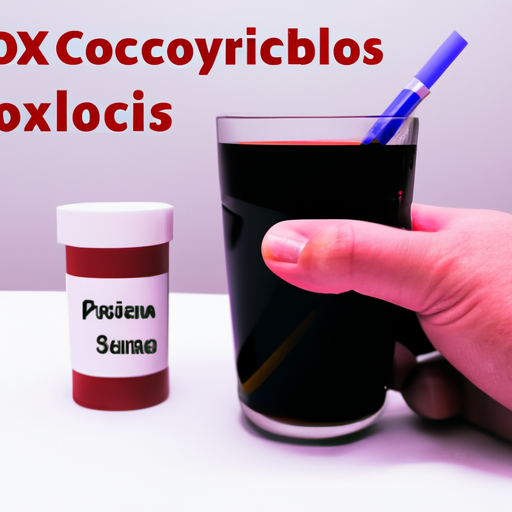I have always been curious about whether drinking turmeric tea, known for its numerous health benefits, could potentially stain my teeth due to its bright yellow color.
With this question in mind, I decided to do some research and find out whether turmeric tea really does stain teeth.
From my findings, it turns out that turmeric tea does have the potential to stain teeth, although the likelihood of staining depends on various factors such as the frequency and duration of consumption, as well as individual factors such as oral hygiene and enamel strength.
In this article, I’ll be exploring the science behind turmeric’s color, discussing other foods and beverages that stain teeth, and sharing tips on how to minimize staining while still enjoying the benefits of turmeric tea.
Key Takeaways
- Turmeric tea can stain teeth due to the compound curcumin, which is responsible for turmeric’s color and health benefits.
- The extent of staining depends on factors such as frequency, duration, oral hygiene, and enamel strength, and can be reduced by using a straw and maintaining good oral hygiene practices.
- Other foods and beverages such as coffee, red wine, tea, soda, dark berries, tomato sauce, and soy sauce can also stain teeth.
- Turmeric tea offers numerous health benefits, including anti-inflammatory and antioxidant properties, improved digestion, protection against skin damage, and improved brain function, among others.
The Science Behind Turmeric’s Color
So, you’re probably wondering why turmeric has such a vibrant yellow color, and it’s all thanks to a compound called curcumin. Turmeric’s chemical composition includes this powerful antioxidant, which not only gives the spice its characteristic hue, but also provides a host of potential health benefits.
This compound has been studied for its anti-inflammatory properties and has played a significant role in traditional medicine practices for centuries. While curcumin’s health benefits are widely recognized, its potential for staining is also a well-known fact.
The bright yellow pigment can easily transfer onto surfaces, including teeth, clothes, and countertops. In fact, this is one of the main concerns when consuming turmeric tea or other turmeric-based products. But fear not, there are ways to enjoy the benefits of turmeric without worrying about staining – read on to find out.
The Potential for Staining
Beware, sipping on this golden elixir may leave your pearly whites with a tint of sunshine. Turmeric tea has the potential for staining teeth due to its vibrant yellow color. However, this staining is not permanent and can easily be prevented with proper oral hygiene and preventative measures.
To understand the potential risks of turmeric tea staining teeth, it’s important to take a closer look at its chemical composition. The active ingredient in turmeric, curcumin, is highly pigmented and can easily adhere to tooth enamel. However, by practicing good oral hygiene, such as brushing and flossing regularly, and rinsing with water after consuming turmeric tea, the risk of staining can be greatly reduced. Additionally, incorporating preventative measures such as using a straw while drinking can also help prevent staining. With these simple steps, you can still enjoy the numerous health benefits of turmeric tea without the worry of staining your teeth.
Other foods and beverages that stain teeth include coffee, red wine, and tea. However, by implementing similar preventative measures, such as using a straw or brushing after consumption, staining can be minimized.
Other Foods and Beverages that Stain Teeth
If you’re an avid coffee drinker or red wine enthusiast, you may want to consider implementing preventative measures to minimize the staining effects on your pearly whites. Other foods and beverages that can contribute to tooth discoloration include tea, soda, dark berries, tomato sauce, and soy sauce.
While it may be difficult to completely eliminate these items from your diet, there are ways to reduce the impact they have on your teeth. One option is to use a straw when drinking dark beverages to minimize contact with the front teeth. Another option is to brush your teeth or rinse your mouth with water after consuming staining foods or drinks.
If you’re looking to brighten your smile, there are several teeth whitening options available. Over-the-counter whitening products, such as whitening toothpaste or strips, can be effective for mild discoloration. Professional teeth whitening treatments, such as in-office bleaching or take-home trays, can provide more dramatic results. However, it’s important to consult with a dental professional to determine the best course of action for your individual needs.
With a little effort and the right tools, you can enjoy your favorite foods and drinks without sacrificing your bright, white smile. Now, let’s explore the benefits of turmeric tea.
The Benefits of Turmeric Tea
I absolutely love turmeric tea, not only for its delicious taste, but also for its numerous health benefits.
One of the key benefits of turmeric tea is its anti-inflammatory properties, which can help reduce inflammation throughout the body and alleviate symptoms of conditions like arthritis and digestive issues.
Additionally, turmeric tea is rich in antioxidants, which can help protect your cells from damage caused by free radicals and potentially reduce the risk of chronic diseases.
Overall, incorporating turmeric tea into your daily routine can provide a variety of health benefits that are definitely worth considering.
Anti-Inflammatory Properties
You’ll be happy to know that turmeric tea can provide relief for inflammation in the body. The active ingredient in turmeric, curcumin, has been shown to have powerful anti-inflammatory effects. However, it’s important to note that the dosage and recommended intake of turmeric may vary depending on the individual’s health needs. It’s always best to consult with a healthcare professional before adding any new supplements to your diet.
While turmeric is generally safe for consumption, it’s important to be aware of its potential side effects and precautions. Some individuals may experience gastrointestinal discomfort or allergic reactions. Additionally, turmeric may interact with certain medications, such as blood thinners. Therefore, it’s important to speak with a healthcare professional before incorporating turmeric into your routine.
Now, let’s explore turmeric’s antioxidant properties.
Antioxidant Properties
As we discussed earlier, the anti-inflammatory properties of turmeric tea are widely known. However, it’s important to note that turmeric tea also has significant antioxidant properties. Antioxidants are important because they help to protect our bodies from damage caused by free radicals, which are unstable molecules that can cause harm to our cells and DNA.
The antioxidant properties of turmeric tea are particularly beneficial for our skin and digestion. Here are three ways that turmeric tea can benefit your skin and digestion:
- Turmeric tea can help to reduce inflammation in your gut, which can improve digestion and reduce symptoms of conditions like irritable bowel syndrome (IBS).
- The antioxidants in turmeric tea can help to protect your skin from damage caused by free radicals, which can contribute to premature aging.
- Turmeric tea has been shown to improve circulation, which can lead to healthier, glowing skin.
In addition to these benefits, turmeric tea has many other health benefits that we’ll explore in the next section.
Other Health Benefits
Furthermore, consuming turmeric tea regularly has been linked to a variety of other health benefits. Turmeric contains compounds that have been shown to improve brain function, including memory and concentration.
Additionally, turmeric’s anti-inflammatory properties can lower the risk of heart disease by reducing inflammation in the body. Turmeric has also been shown to have a positive impact on mental health, as it can help reduce symptoms of depression and anxiety.
However, it’s important to note that while turmeric tea may have health benefits, it may not be effective for weight loss or digestion. While some studies have shown that turmeric can help improve digestion and aid in weight loss, the evidence is not conclusive.
It’s important to consult with a healthcare professional before using turmeric tea for these purposes. In the next section, we’ll discuss how to make turmeric tea at home.
How to Make Turmeric Tea
Turmeric tea is a simple and delicious beverage that can be made by boiling water and adding a teaspoon of turmeric powder, which will infuse the water with a warm, golden color reminiscent of a sunset over the ocean.
Besides being a refreshing drink, turmeric tea has numerous health benefits. It’s a natural anti-inflammatory and antioxidant, which means it can help reduce inflammation and oxidative damage in the body. It may also help improve brain function, lower the risk of heart disease, and even prevent cancer.
If you’re looking to mix up the flavor of your turmeric tea, there are many variations you can try. Adding a pinch of cinnamon or ginger can give it a spicy kick, while a squeeze of lemon or honey can add a sweet and tangy flavor. The possibilities are endless! Just be sure to use high-quality turmeric powder to ensure you’re getting the most health benefits from your tea.
As much as I enjoy drinking turmeric tea, it’s important to note that turmeric supplements may provide more concentrated levels of curcumin, the active ingredient in turmeric that provides its health benefits.
In the next section, we’ll explore the differences between turmeric supplements and turmeric tea.
Turmeric Supplements vs. Turmeric Tea
To compare the benefits of turmeric supplements and turmeric tea, you should consider that the supplements provide a more concentrated form of curcumin, which can potentially offer stronger health benefits than the tea. However, turmeric tea can still be a great option for those looking to incorporate turmeric into their daily routine in a more enjoyable and relaxing way.
It’s important to note that while supplements may provide a higher concentration of curcumin, they may not be as easily absorbed by the body as the curcumin in turmeric tea.
When it comes to turmeric supplements, there are both pros and cons to consider. On the one hand, supplements can be an effective way to get a higher dose of curcumin, especially for those who may not enjoy the taste of turmeric tea. However, it’s important to choose a high-quality supplement from a reputable brand to ensure that you’re getting a safe and effective product. Additionally, some people may experience side effects from taking turmeric supplements, such as stomach upset or interactions with certain medications.
Tips for incorporating turmeric into your daily routine include adding it to your meals as a spice, taking a turmeric supplement with food, or enjoying a warm cup of turmeric tea before bed.
As for other ways to incorporate turmeric into your diet, there are plenty of options to choose from. From turmeric lattes to turmeric smoothies, there are endless recipes available online that can help you get your daily dose of this powerful spice. Additionally, you can try adding turmeric to your favorite soups, stews, and curries for an extra boost of flavor and health benefits.
Other Ways to Incorporate Turmeric into Your Diet
If you’re looking to add some variety to your meals, try experimenting with different turmeric recipes such as a hearty turmeric lentil soup or a flavorful turmeric chicken skewer.
Another way to incorporate turmeric into your diet is by making a turmeric latte or smoothie. Both recipes are easy to make and are a great way to start your day off with a healthy boost of antioxidants and anti-inflammatory properties.
To make a turmeric latte, mix together turmeric, cinnamon, ginger, honey, and milk in a saucepan and heat until it reaches a simmer. Pour the mixture into a mug and enjoy!
For a turmeric smoothie, blend together almond milk, banana, turmeric, ginger, and a handful of spinach for a delicious and nutritious drink. These recipes are just a few examples of the many ways you can incorporate turmeric into your diet, so don’t be afraid to get creative in the kitchen!
As with any dietary change, it’s important to consult with a healthcare professional to make sure it’s safe for you. In the next section, we’ll discuss the importance of consulting with a healthcare professional before starting any new dietary regimen.
The Importance of Consulting with a Healthcare Professional
Before making any significant changes to your diet, it’s crucial to consult with a healthcare professional to ensure that you’re making safe and healthy choices that will benefit your overall well-being. This is especially important when it comes to incorporating turmeric into your diet, as it can have potential interactions with certain medications and medical conditions.
Consulting with a healthcare professional can provide several benefits, including:
- Personalized guidance: A healthcare professional can help determine the appropriate amount of turmeric to incorporate into your diet based on your individual health needs and medical history.
- Identification of potential risks: Certain medical conditions or medications may interact with turmeric, which can cause adverse effects. A healthcare professional can help identify any potential risks and provide guidance on how to minimize them.
- Monitoring of progress: Regular communication with a healthcare professional can help monitor the effects of incorporating turmeric into your diet and make any necessary adjustments.
By consulting with a healthcare professional, you can ensure that you’re making safe and healthy choices when incorporating turmeric into your diet. This guidance can help you reap the potential health benefits of turmeric while minimizing any potential risks.
In the next section, we’ll address common misconceptions about turmeric and provide clarity on its potential benefits.
Common Misconceptions about Turmeric
Before we dive into the common misconceptions about turmeric, it’s important to reiterate the importance of consulting with a healthcare professional before incorporating any new substance into your diet. This is especially true if you have any pre-existing health conditions or are taking any medications that may interact with turmeric.
Now, let’s address some of the turmeric myths that have been circulating. One of the most common misconceptions about turmeric is that it stains teeth. While turmeric itself is a bright yellow-orange spice, drinking turmeric tea is unlikely to cause any significant staining to your teeth.
In fact, turmeric has been shown to have numerous health benefits, including anti-inflammatory and antioxidant properties that may help improve brain function and reduce the risk of chronic diseases. So, don’t let the fear of stained teeth prevent you from reaping the benefits of this powerful spice.
Frequently Asked Questions
What are the other benefits of turmeric besides staining teeth?
Turmeric has anti-inflammatory properties that can aid in reducing inflammation and improving skin health. It’s also high in antioxidants, which help fight against free radicals and protect against oxidative stress.
How often should I drink turmeric tea to see the benefits?
To see the benefits of turmeric tea, I recommend regular consumption at an optimal dosage of 1-2 teaspoons per day. It’s important to note that turmeric may interact with certain medications, so consult with a healthcare professional before starting.
Can turmeric tea be consumed during pregnancy?
As a knowledgeable source, I advise consulting with a medical professional before consuming turmeric tea during pregnancy or breastfeeding. While it may provide health benefits, it’s important to ensure it won’t negatively affect you or your baby.
Are there any side effects of consuming turmeric tea?
I’ve found that when consumed in moderation, turmeric tea can provide many benefits such as improved digestive health and clearer skin. However, excessive consumption may lead to side effects such as nausea and diarrhea.
Can turmeric tea be used for teeth whitening?
Turmeric tea can be used for teeth whitening due to its natural anti-inflammatory properties and ability to reduce plaque buildup. However, it may also stain teeth if consumed in excess. Oral health should be monitored when using turmeric for teeth whitening.
Conclusion
Well folks, after diving into the science behind turmeric’s color and potential for staining, I can confidently say that yes, turmeric tea does have the potential to stain teeth.
But fear not, for there are many other foods and beverages that can also cause staining, and there are ways to prevent and treat it.
Despite the potential for staining, turmeric tea offers numerous health benefits and can easily be incorporated into your daily routine.
So go ahead and give it a try, but as always, consult with your healthcare professional before adding any new supplements or dietary changes to your routine.
Remember, a healthy smile starts from the inside out!










